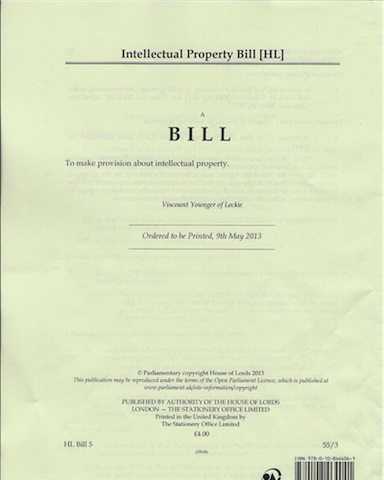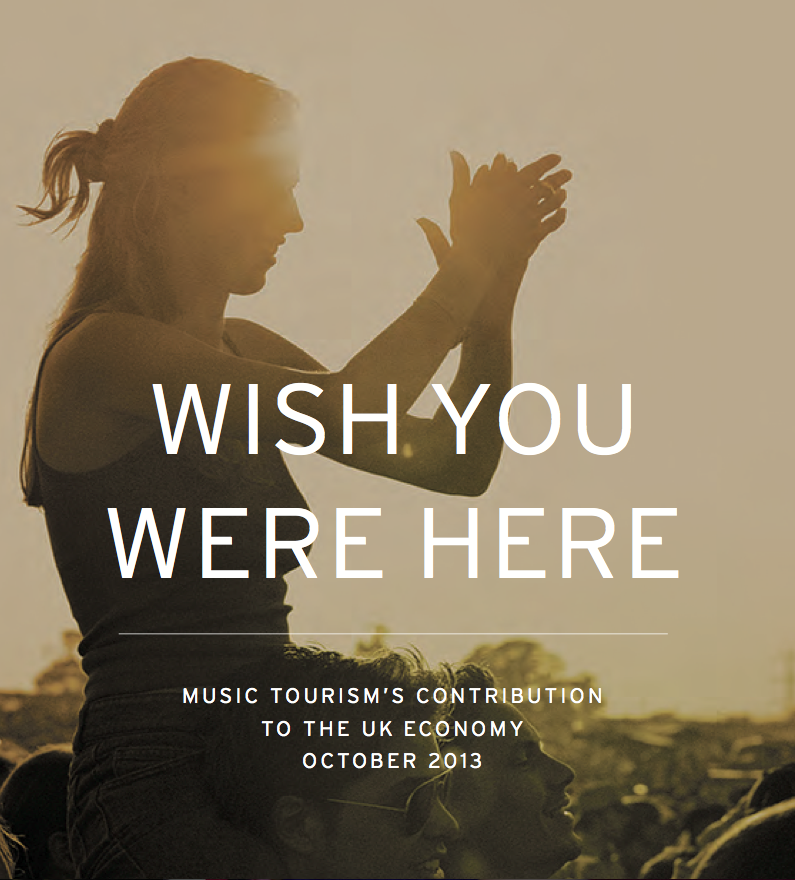Lord C-J on Startups: Financing getting better but major skills gaps
In many respects the Queen’s Speech is to be welcomed, precisely for the fact that it does not contain a huge amount of new legislation. None the less, I welcome the carryover of the Consumer Rights Bill and the Deregulation Bill. Curiously, I note for the aspiring statesmen among us that it will, among other things, make statues easier to erect. I do not know whether your Lordships noticed that.
Britain and China: A Creative Partnership : LSE Confucius Institute Lecture
Government Agrees with Peers to Put Fans First
Earlier this year the Coalition Government agreed a compromise on the Consumer Rights Bill with proponents of transparency measures to prevent ticket fraud and by secondary ticket sellers.
As a signatory to the original amendment and a member of the All-Party Group on Ticket Abuse I paid tribute to Lord Moynihan, Sharon Hodgson MP, Mike Weatherley MP and Lady Heyhoe Flint for their roles in the campaign and their for their efforts in securing this agreement, which will benefit music and sports fans immensely.
Here is what I said:
http://www.publications.parliament.uk/pa/ld201415/ldhansrd/text/150224-0001.htm#15022465000505
We are now waiting for the new Conservative Government to set up the review of the law governing Secondary Ticketing as promised in the last Parliament and enshrined in the Consumer Rights Bill. I asked a question in the Lords about this recently and this is the reply I received
To ask Her Majesty’s Government when they intend to commence the review of the consumer protection measures for the secondary ticketing market under section 94 of the Consumer Rights Act 2015; and who will undertake it.
The Parliamentary Under-Secretary of State, Departments for Business, Innovation and Skills and for Culture, Media and Sport (Baroness Neville-Rolfe) (Con): My Lords, work on appointing the chair and expert group is well advanced and the review will proceed once this and the terms of reference are finalised. We are aware of our statutory obligation to publish a report on its findings by 26 May 2016.
Lord Clement-Jones (LD): My Lords, I thank the Minister for that reply but ticket fraud continues to soar this summer. Circle Tickets has defrauded hundreds of music fans just this June while the RFU reports zero compliance with the Act for World Cup tickets, so the problem remains acute. This review is enshrined in statute as a result of the efforts of the noble Lord, Lord Moynihan, and others only recently. We are now two months out from the general election. When will this review start, will BIS or the DCMS oversee it and what will its scope be?
Baroness Neville-Rolfe: My Lords, as I have said, we will publish details of the review shortly. I share the noble Lord’s disappointment on the enforcement side and, prompted by his Question, I spoke to the City of London Police only last week. I was reassured about some of the actions it is taking, both on its own and with the cultural and sporting bodies, for the important events of this summer. As the noble Lord
Here is the original piece I wrote after the vote in the Lords in November
The House of Lords has handed a big boost to music, sport and comedy fans as a cross-party coalition of Peers yesterday passed an amendment to curb the actions of ticket touts.
In a defeat for the Government, Peers forced through a new clause to the Consumer Rights Bill to increase transparency in the ticket resale market.
The new provisions, passed by 183 votes to 171, will mean that touts selling their tickets through major internet platforms like Seatwave and Viagogo will have to prominently disclose key facts to potential customers, including:
- Their identity, particularly where they are selling tickets as a business;
- The original face value of the tickets being sold;
- The individual characteristics of the tickets being sold, such as the seat number or the booking reference, and;
- Whether the terms and conditions on the ticket mean that it can be cancelled if the organisers find out it has been resold.
It is hoped that the information being made public will enable event holders to identify the largest ticket touts and prevent them from buying up large quantities of tickets to re-sell, leaving ordinary fans with no choice but to pay inflated amounts on the secondary market.
The latest high-profile tour to be affected is that of Fleetwood Mac, with thousands of tickets being resold on the secondary market at way above face value within minutes of the tour selling out. Similarly, next year’s Rugby World Cup has been plagued by touts reselling tickets to England games.
The amendment follows a similar attempt in the Commons earlier in the year. Both amendments were informed by a report from the All-Party Parliamentary Group on Ticket Abuse, which held an inquiry at the beginning of the year into the secondary ticketing market.
Liberal Democrat Peer and signatory to the New Clause, Lord Tim Clement-Jones, said: “This is a victory both for the ticket-buying public and for the hugely important live event industry. The Police and the entertainment industry have been clear that action needs to be taken on ticket touts to ensure that genuine fans can get access to gigs, shows and games without having to pay extortionate prices, and these new measures would do exactly that.”
Labour Co-Chair of the All-Party Parliamentary Group on Ticket Abuse, Sharon Hodgson MP, said: “Ticket touts have operated with impunity for far too long. In no other market would we put up with not knowing who we were buying from or whether they even had permission to sell us a product. This amendment is a significant step towards tackling the scourge of touts and putting fans first, and I hope that the Government now listens to the will of Parliament.”
Conservative Co-Chair of the All-Party Parliamentary Group on Ticket Abuse, Mike Weatherley MP, said: “It’s been clear for a long time that this market is not working in the interest of genuine fans or the people who put in all the hard work and investment to put on live events. Anyone operating honestly has nothing to fear from these changes, but they will make a big difference for ordinary fans. It’s imperative that the Government doesn’t try to reverse this amendment when the Bill comes back to the Commons.”
See the Report in the Evening Standard
Ming : 50 years that changed China
A fantastic exhibition at the British Museum! Well worth a visit!
As the BM say:
The exhibition explores the years 1400 – 1450, a pivotal 50 year period that transformed China during the rule of the Ming dynasty. In this period the capital is established in Beijing and the borders of China are fixed as they are today. Bureaucrats replace military leaders in the hierarchy of power, the emperor’s role changes from autocrat to icon, and the decision is taken to centralise, rather than devolve, power. The exhibition includes rare loans of some of the finest objects ever made in China, shedding light on this important part of world history that is little known in Europe. China’s internal transformation and connections with the rest of the world led to a flourishing of creativity from what was, at the time, the only global superpower."
Lord C-J helps to launch techUK manifesto for growth and jobs
I recently went to techUK where Julian David their Chair and Charlotte Holloway their Head of Policy launched their Manifesto for growth and jobs.
Ed Vaizey, Minister for Culture & Digital Industries, Iain Wright Shadow BIS Minister and I gave our responses to the recommendations and outlined our parties' visions for digital and tech policy post-2015.
Here is what I said:
I am delighted to be here at the launch today of techUk’s Manifesto.
It strongly reinforces and complements the Start up Manifesto from COADEC published this month and the Report "Connected Cities" from Jim O'Neil's City Growth Commission published in July. Singing from the same hymn sheet.
I can't comment at length. But I want to deal in turn with a few key aspects set out in the manifesto.
First , Access to Finance
I agree need to ensure that Tech companies at every stage have access to the Finance they need to grow and can stay in London.
We've successfully tackled access to early stage equity finance through the Government's Seed Enterprise Investment schemes it's one of the most generous early stage tax breaks available anywhere in the world.
Tech companies have also benefited from a range of Government investment and support schemes, including the Business Growth Fund, Enterprise Capital Funds (ECF)and the Enterprise Finance Guarantee (EFG),
It is the later stages of equity finance where we are behind Silicon Valley and Nasdaq in New York. Problem of business accessing finance to achieve scale. There is a danger of businesses moving to the US at this funding stage.
No solution yet although the LSE looking at this and there is evidence from recent listings on the Stock Exchange that the creation of the new High Growth Segment to encourage companies to list here is having an impact. Look forward to Sherry Coutu’s report mentioned in the Manifesto
As regards debt finance with very limited exceptions the banks are failing SME's and start ups but Crowd funding is beginning to have a real impact and it is good that fund such as Funding Circle are receiving government suppor through the Business Finance Partnership scheme (BFP).
Loans through Crowd funding have recently hit the £2bn mark.
The Lib Dems don't propose waving a magic wand but in our pre manifesto explicitly we want to facilitate new entrants to the banking sector, including through public procurement policy, so that there is much more choice and variety of competitors in banking, in particular business banking and encourage the growth of crowd funding and alternative finance models, .
We also echo the Manifesto in supporting innovation through greater public funding on a longer timescale, with a ring-fenced science budget, more ‘Catapult’ innovation and technology centres.
I am glad to see praise for Catapult centres . The Euston Connected Digital Economy catapult has worked diligently with Dominic Young and his team to develop the Copyright Hub. But they are a well kept secret and their work needs to be promoted.
Skills
The talent available however is far below what we need. Start ups need a mixture of technical and creative skills to develop their new digital services. The manifesto quotes my colleague Baroness Lane-Fox in saying we need 1 million tech jobs to be filled by 2020 to keep up with demand.
I welcome the mandatory inclusion in the curriculum of coding/computer science from this September for 5-16 year olds, the first in the G20 Also welcome the involvement of the tech sector in Code Clubs.
But even if the pipeline from schools was finding the right talent programmers fresh out of college are not necessarily up to the job. Training and proper apprenticeships are hugely important.
•Lib Dems are keen to increase the number of apprenticeships and improve their quality, extending the Apprenticeship Grant for Employers for the remainder of the next Parliament, delivering 200,000 grants to employers and expanding the number of degree equivalent Higher Apprenticeships.
• Develop National Colleges as national centres of expertise where there is demand and an identified need, to deliver the high level vocational skills that businesses need in these areas
That said we will still be reliant on the skills of overseas undergraduates and post graduates and we should welcome them.
As the Manifesto makes clear -reinforced by a recent report from universities Uk and an earlier report from Policy Exchange--we must change policies towards overseas students
I welcome the call for a smart migration policy. It's no secret that there is a difference of emphasis between the coalition parties on this. Can’t chase unrealistic targets in trying to reduce in net migration at the expense of growth in the digital economy.
• In our Pre manifesto we pledge to remove students from our immigration targets given their temporary status, while taking tough action against any educational institution which allows abuse of the student route into the UK.
In my view we need to go further and take the actions suggested by techUk (as does the Start up Manifesto) such as reinstatement of the post study work route visa. I have asked numerous questions on visa policy towards students for the past 4 1/2 years and we are walking towards disaster.
Clusters
The manifesto clearly recognizes the importance of geographic and sectoral balancing of our economy . Correct when the Manifesto says tech economy “more geographically extensive than is often recognized”
And this leads to the importance of clusters. Tech City yes-with 15,000 startups last year and the year before.
70,000 people now employed there. The Tech sector has accounted for 30%of new London jobs since 2009.
But there are so many other places,
- Newcastle Silicon Shore,
- Liverpool with the Baltic Triangle
- Brighton’s so called Silicon Beach
- Dotforge in Sheffield
Also Manchester, Edinburgh, Leeds, Bristol. Birmingham, and Bath.
The role of universities is crucial in all of this.
But how can we strengthen our clusters?
RSA's City Growth Commission chaired by Jim O’Neil takes the view that too many of the UK’s urban areas outside London are failing to achieve their growth potential.
It is of course important that we build on initiatives like the City Deals and the Regional Growth Fund.
The number of City Deals and Growth Deals have grown, not just in the bigger cities but in places such as Brighton and Cambridge too. The Regional Growth Fund has already delivered 99,000 jobs and £1.8 billion of private investment.
But we need to go further.
We need to give the cities greater powers, especially over finance. More than 90% of tax is collected by central government. We need to devolve more economic decision making to local areas and away from national government.
- Our proposal is to introduce ‘Devolution on Demand’, enabling even greater devolution of powers from Westminster to councils or groups of councils working together
- Establish a commission to explore the scope for greater devolution of financial responsibility to English local authorities, and new devolved bodies in England.
We also need much better transport and digital connectivity between what Jim O'Neill and the City Growth commission call Metros.
• Lib Dems propose to Invest in major transport improvements and infrastructure to create a ‘Northern Economic Corridor’; a focus for growth, innovation and prosperity across northern England.
International Dimension
We are already the highest net exporter of computer and information services among the G7 countries and our tech/internet economy accounts for a greater percentage of GDP in the UK than in any other G20 country.
So we need to make sure that digital markets are open.As the manifesto says we need to break down the barriers to E-commerce across the EU to create a genuine European Digital Single Market.
Then there is TTIP the US/EU free trade agreement in the offing.
Jonathan Lord Hill will be an effective advocate for the UK in both. The Lib Dems position on staying in the EU is well known.
Safeguarding and inclusion
Heartening to see techUK’s concerns over online privacy and security. Agree need to demonstrate that security services and corporate sector operate within clear and strict boundaries to ensure that public trust is retained. Cloud security and collection and retention of data have become real issues in the wake of recent events.
Lib Dems have put forward proposals for a Digital Bill of Rights to define and enshrine the digital rights of the citizen, protect people from unacceptable intrusion by the state and by other organisations, and giving people more control over their own data.
It is important that authorities can only accesss personal data where an individual is suspected of taking part in illegal activity.
Child online protection important too. The BBFC is an important part of the voluntary agreements among service providers but mobile standards are better than those for the public WIFI providers
But we must not go too far the other way. We must safeguard the essential freedom of the internet while ensuring the reasonable protection of individuals and businesses.
- The ECJ Spanish Google case establishing a Right to be Forgotten. Entirely agree with the Manifesto that it raises huge concerns.
- Then there is an EU Proposal to drop the exemption from Article 80 of the General Data Protection Regulation for journalists right to investigate in the public interest.
- The office of the Information Commissioner is under resourced.
The manifesto also urges that digital exclusion is tackled.There is still a lack of universal digital skills in Britain. Norway/Sweden by contrast have 97% basic digital literacy. The manifesto asks for a commitment by Government to fund the teaching of basic digital skills of the order of £900 million.
- I can't commit to exact expenditure but Lib Dems certainly commit in our Pre-Manifesto to prioritise expanding digital literacy and connectivity.
Certain omissions
So all in all some very important conclusions which my party strongly supports and will support in any future government.
Let me just briefly however to mention some areas where in my view the Manifesto could have been more explicit.
- Recognize the importance of being world leader in the development of digital economy but doesn’t recognize the increasing convergence between platform content, between tech and the creative industries. There is no doubt that each sector is increasingly making use of relevant skills in the other.
- There is no mention of IP. Digital copyright infringement sanctions need to be enhanced. In the digital space The Follow the Money Initiative against infringing websites very important
- PIPCU is a vital resource in combatting counterfeiters and infringers There is no discussion of its future funding beyond 2015.
In the sum of things however can I congratulate techUK on their Manifesto and pledge my party to work closely in partnership with the industry.
Intellectual Property Bill
The Intellectual Property bill had its Second Reading on 22nd May. Whilst most of it's provisions are welcome there are a number of omissions that we argued should be corrected during the passage of the Bill through the House of Lords, in particular to align criminal offences for registered designs with those of unregistered design, to provide a remedy for lookalike products which mislead the consumer and to align criminal penalties for digital and physical copyright infringement.Read more
Busking under threat in Camden
See the campaigns section and add your voice to those who want to reverse their perverse decision to insist on a licence from all buskers!
UK Music launches excellent new report on Music Tourism
UK Music have published an excellent report on Music tourism: Wish you Were Here
This follows their groundbreaking last report in 2011, Destination: Music—the Contribution of Music Festivals & Major Concerts to Tourism in the Uk
The main messages are:
We’ve uncovered a hidden gem. Music tourism has never been properly studied before.
Groundbreaking research. Unprecedented access to data – to give us the most comprehensive picture ever of live music and tourism.
Significance of music tourism to economy reaching highest levels – from Prime Minister to House of Lords debate to new partnerships with tourism authorities.
They are calling for an overarching music tourism strategy to maximise potential.
The Main Statistics are:
- UK Music counted 6.5 million music tourists in 2012.
- On average, 41% of the population at live music events is comprised of music tourists.
- Music tourism is generating £2.2 billion in spending overall.
- £1.3 billion of that is spent directly by music tourists themselves,
- Their presence stimulates a further £914 million in spending further down the supply chain.
- Music tourism is sustaining 24,251 jobs overall.
- 16,135 of those jobs exist as a direct result of music tourism
- a further 8,115 jobs were created further down the supply chain as a result of music tourism
- These are “full-time equivalent” jobs – so if there are two part-time jobs of 20 hours a week, or 4 seasonal jobs each lasting 3 months, we count them as one FT job.
- Music tourism contributes nearly a billion pounds (£934 million) to the nation’s wealth as measured by GDP
- 544 million as a direct result of music tourism
- A further £390 million as a result of economic activity further down the supply chain.
- Overseas music tourists comprised just 6% of the total music tourism population, but they accounted for 20% of total spending by music tourists. They’re like gold dust. Per capita, they each spend nearly a grand (£910) in the UK when they come here to attend music festivals, and nearly £400 (£396) when here to attend a gig. This includes spending at the live music event itself as well as what they spend over the course of their stay in the UK.
This is a great Report. It identifies the opportunities extremely well .
What we now need, as I said in Lord Storey’s debate in June, is for the Government to team up with VisitBritain,the Arts Council, the British Council the music industry, the tourism and hospitality industries and others to identify the “real levers and barriers” to growing music tourism at national level, in many cases red tape and do the necessary. We need a properly joined-up strategy, particularly in terms of reducing regulation
Amazing Isabella Blow Exhibition at Somerset House
Isabella or Issie as she was known was my 2nd cousin and a fashion legend who whilst Tatler Style Editor, Fashion Editor of The Sunday Times Magazine and in other roles "discovered" and nurtured Alexander McQueen, Philip Treacy and a http://healthymanviagra.com/ number of other major designers but who tragically committed suicide in 2007. The launch last week had just about everyone of note in the British fashion industry there.
This exhibition not only describes her family background (grandaughter of White Mischief Sir Jock Delves Broughton and Lady Vera Broughton pioneering explorer and photographer) and career but includes a incredible collection of her designer clothes, with some amazing hats. As I said to her sister Lavinia afterwards, it was touching, fascinating and astonishing all in one.










